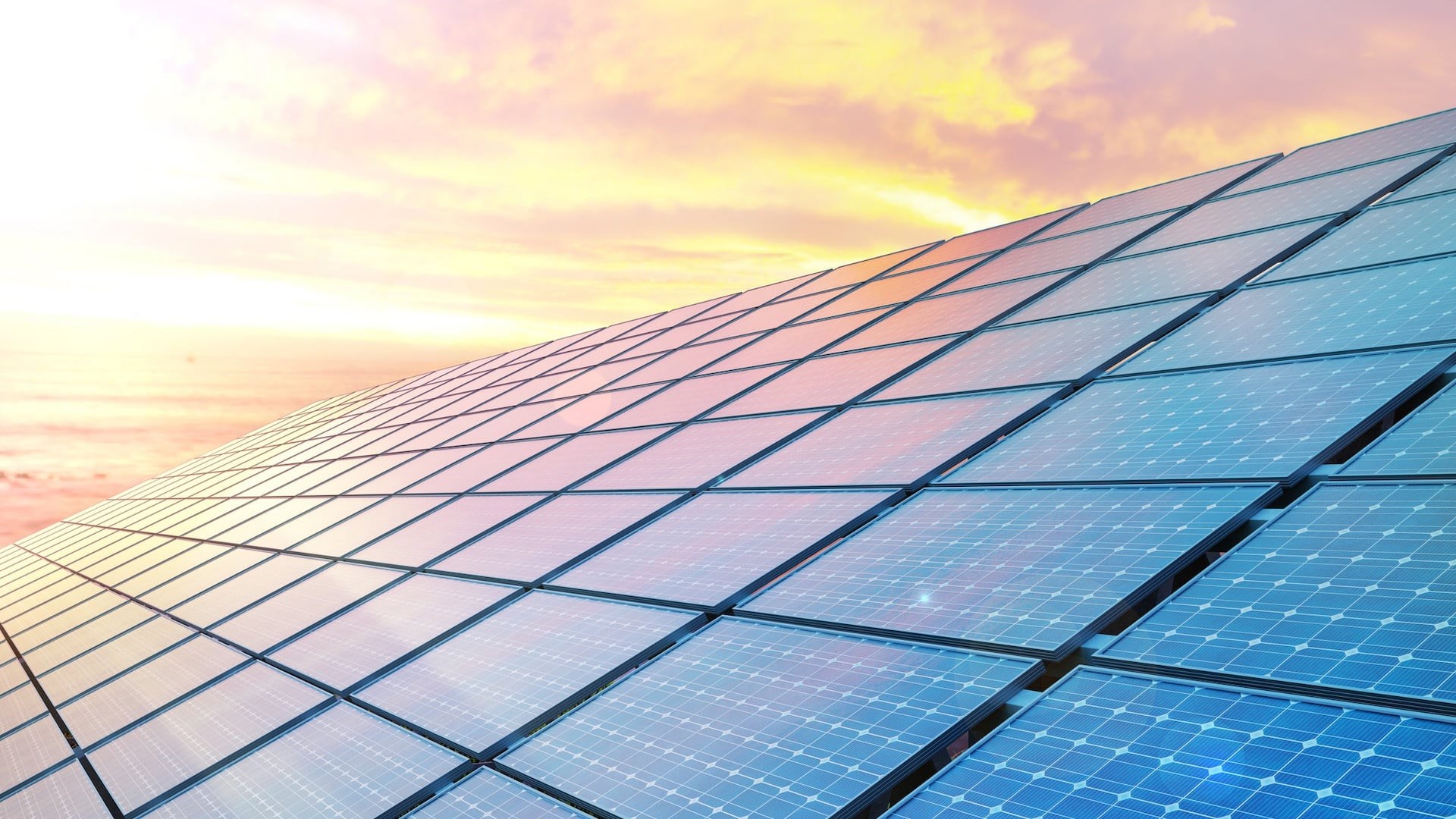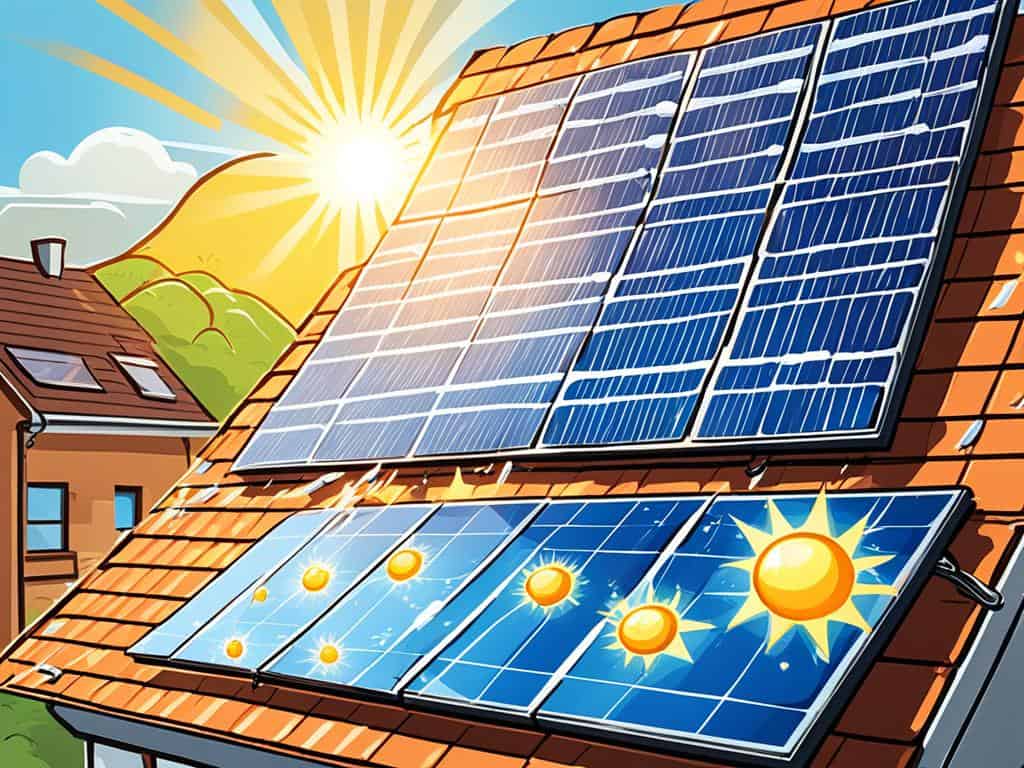Discover how commercial properties profit from Solar Panels as a renewable solution.
Discover how commercial properties profit from Solar Panels as a renewable solution.
Blog Article
Optimize Energy Financial Savings With High-Quality Solar Panels
Making best use of power financial savings with making use of high-grade photovoltaic panels is a multifaceted method that requires careful consideration of technology, installation, and upkeep. Choosing high-efficiency choices, such as monocrystalline panels, can significantly enhance electrical power generation, while longevity and warranty terms play an important function in long-term economic practicality. Moreover, understanding the capacity for federal government incentives can amplify the roi. Nevertheless, the trip does not end with the acquisition; the nuances of installation and continuous upkeep are similarly vital to accomplishing optimum outcomes. What aspects should house owners focus on to ensure they recognize these advantages completely?
Advantages of Solar Power
The benefits of solar power are many and significant, making it an increasingly eye-catching choice for both domestic and commercial applications. Among the key advantages is its prospective to lower electrical energy costs. By taking advantage of sunlight, property proprietors can produce their own power, reducing dependence on conventional energy sources and eventually resulting in considerable savings.
One more crucial advantage is ecological sustainability. Solar power is a tidy, renewable source that assists to minimize greenhouse gas emissions, adding to a reduction in air contamination and climate change. This aligns with worldwide efforts to change towards even more lasting power remedies.
Additionally, solar power systems can boost building value. Homes and businesses geared up with photovoltaic panels frequently have greater resale values, interesting environmentally-conscious purchasers and capitalists. Federal government motivations, such as tax obligation debts and rebates, can offset setup costs, making solar power also extra financially practical.
Lastly, solar technology advertises power self-reliance. By purchasing solar power, people and businesses can decrease their susceptability to changing energy costs and supply interruptions, cultivating greater control over their power resources. Jointly, these advantages emphasize the compelling reasons to think about solar power solutions.
Selecting the Right Solar Panels
Picking the appropriate photovoltaic panels is a crucial action in maximizing the efficiency and benefits of a solar power system. When reviewing photovoltaic panels, several variables need to be thought about to make certain optimum performance and long-lasting cost savings.
First, examine the panel's efficiency score, which shows just how successfully it transforms sunshine into electrical energy. Higher efficiency panels may have a greater in advance cost yet can produce more energy in restricted space. Next, check out the service warranty provided by the supplier; a much longer warranty typically mirrors a higher level of self-confidence in the product's sturdiness and performance.
Furthermore, think about the kind of photovoltaic panel modern technology. Monocrystalline panels are known for their high performance and space-saving style, while polycrystalline panels tend to be extra cost effective however a little much less reliable. Bifacial panels, which capture sunshine from both sides, are likewise acquiring appeal for their potential to boost power output.
Finally, carry out a comprehensive evaluation of independent performance rankings and client evaluations to assess dependability and fulfillment. By more information carefully taking into consideration these elements, property owners can make informed options that line up with their energy demands and financial objectives, eventually boosting the return on investment for their solar power systems.
Understanding Setup Expenses
Comprehending the prices related to mounting photovoltaic panels is important for property owners seeking to buy sustainable power. The total setup expense can vary dramatically based upon numerous factors, including system size, panel kind, setup intricacy, and geographical location.
Usually, the cost is relied on a per-watt basis, with typical costs varying from $2.50 to $3.50 per watt before any kind of incentives. A common domestic system may set you back between $15,000 and $25,000, depending upon power needs and the chosen elements.
Along with the panels themselves, home owners need to think about expenses associated with inverters, mounting equipment, and electrical upgrades. Labor costs additionally play an important function, as professional installation ensures compliance with security requirements and local guidelines.

Ultimately, comprehending these installment expenses and potential monetary benefits is essential for house owners to make educated choices regarding transitioning to solar power.

Maintenance for Long-Term Savings
Maintaining photovoltaic panels is essential for making the most of long-lasting power financial savings and ensuring the system operates at peak efficiency. Normal maintenance involves a number of essential practices that can considerably boost the longevity and efficiency of solar setups.
First, regular inspections need to be performed to recognize any kind of physical damage or wear, such as cracks or loosened links. Cleaning up the panels is also necessary, as dust, dirt, and particles can obstruct sunshine, reducing energy output (Solar Panels). It is suggested to cleanse the panels at the very least two times a year, or extra regularly in areas with high levels of dirt or contamination
In addition, checking the system's efficiency with a surveillance software program can supply real-time data on energy production and alert home owners to any abnormalities. This aggressive approach permits timely repairs, reducing downtime and keeping optimum power generation.
Environmental Impact of Solar Power
The environmental effect of solar power expands much past its instant advantages of reducing electricity bills and reliance on fossil why not look here gas. By utilizing sunlight, solar power substantially decreases greenhouse gas exhausts, consequently alleviating climate modification. Unlike traditional energy resources such as coal or gas, solar power generation does not produce air contaminants, adding to boosted air quality and public health.
Moreover, solar energy advertises biodiversity by reducing the requirement for fossil gas removal, which often interferes with ecological communities and habitats. By transitioning to eco-friendly energy resources, we can preserve all-natural landscapes and secure threatened types from environment loss.
The life cycle of photovoltaic panels likewise presents a reduced ecological footprint contrasted to typical power resources - Solar Panels. While manufacturing photovoltaic panels involves some resource usage and exhausts, improvements in modern technology and recycling procedures are continuously reducing these impacts. In addition, the long-lasting benefits of solar power-- such as reduced reliance on finite resources-- far outweigh these preliminary costs
Final Thought
In recap, the adoption of premium solar panels presents considerable chances for power financial savings and environmental benefits. The calculated alignment of solar panel selections with energy demands and federal government incentives go to my site enhances return on financial investment, advertising sustainability and decreasing dependence on traditional energy sources.
Report this page